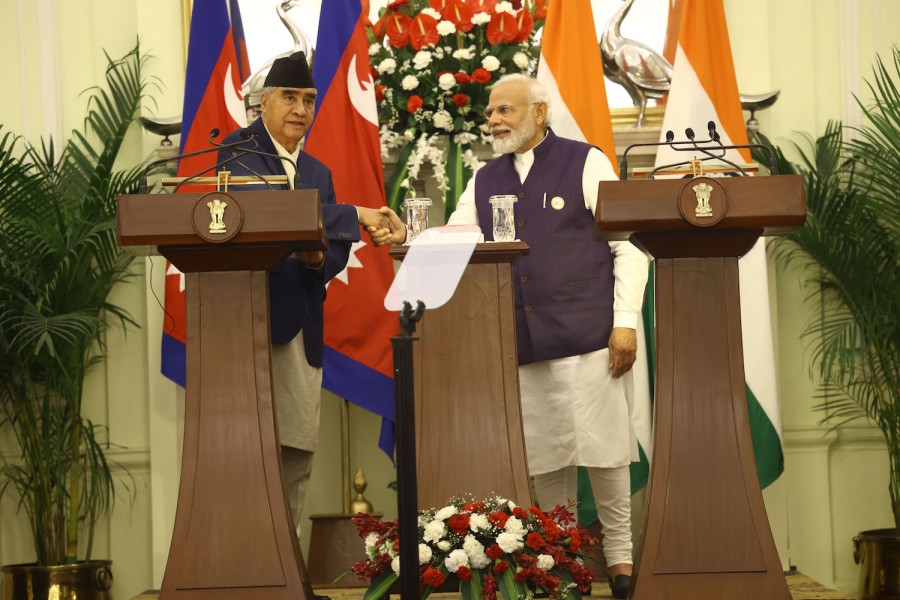Editorial
Diplomatic hobnobbing
Nepal’s politicians need to have the astuteness to translate friendly ties into economic advantage.
Nepal’s government suddenly finds itself in a flurry of diplomatic hobnobbing since the ratification of the Millennium Challenge Corporation (MCC). First, it was the visit by Chinese Foreign Minister Wang Yi with a purpose to get, perhaps, the Belt and Road Initiative (BRI) ball rolling and clear the air concerning the MCC deal about which China had expressed strong reservations. Wang Yi left Nepal after concluding nine deals related to a range of subjects from grass and railways to economic and technical cooperation but none on projects associated with the BRI, citing the necessity for more negotiations.
And within days following Yi’s departure, Prime Minister Sher Bahadur Deuba was seen in India, flagging off the Kurtha-Jayanagar train and participating in talks primarily centred around the energy sector. While there is nothing to suggest that Premier Deuba was taken on a wild goose chase, the administration is probably aware that the geopolitical situation it currently finds itself in isn’t as plain sailing as hoodwinking the Nepali people into believing its exaggerated claims.
Being landlocked has been a bane of our existence. Switzerland, which is also landlocked, is in a rather favourable situation in terms of its geographical positioning, with countries like France, Germany and Italy vying to offer their ports at competitive rates. But Nepal, which faces difficulty accessing the border with China in the north, is left with no other port access than that extended by India; and we all have witnessed, as recently as in 2015, the consequences of not adhering to the southern neighbour’s demands. Therefore, it is of paramount importance that the Nepali administration handle both India and China and any other nation that wishes to engage with us with tact and finesse in securing that which serves our best interest.
Apart from all the pleasantries, which have been reduced to clichéd statements between leaders of the home nation and visiting dignitaries on strengthening ties and taking them to a new level, words need to be followed by action on the ground. A lopsided affair will do no good to any party in a discussion. And this truth could not be any further during Deuba’s visit that concluded yesterday. Perhaps with good reason, his entourage included the likes of the foreign minister; minister for energy, water resources and irrigation; minister of health and population; and minister for agriculture and livestock. These are primarily the areas that would pique India’s interest as well, and if we play our cards right, there would be no reason to doubt that the outcome of such a high-level visit would be a favourable one—for Nepal too.
Thus, we cannot just rely on the lip service paid to strengthen bilateral ties; Nepal’s politicians need to have the astuteness and agility to translate these friendly ties into economic advantage for the nation and its people, primarily in the areas it is seen to have something concrete to offer, such as energy and agriculture.




 18.12°C Kathmandu
18.12°C Kathmandu














